The Year of Covid-19
Mark:
February, still fully winter but with the promise of spring. As I have done many times before, I set out by road for the small Alaskan fishing port where I've sheltered boats for decades. Cordova, with no road connection, is accessible only by air or by sea, and requires a lengthy ferry trip from the oil port of Valdez. With a year-round population of only 2,240 this beautiful community, nestled immediately between the mountains and Prince William Sound, is one of the most important fishing ports in the country. Although it varies from season to season, on average Cordova ranks eighth in the nation by volume of production and fourth by value of product.
The drive north this year, in preparation for my now annual solo winter cruise, was normal in most respects, including temperatures in the minus 20's, snow packed roads, and short daylight hours requiring careful planning as age degrades my once superb night vision. But it would prove to be markedly different than any of those that had come before.
A few days after arriving in Alaska, word of the corona virus infections in the Kirkland, WA long-term care home made world headlines. I realized then the world would no longer be quite the same.
I set about commissioning and provisioning Tamara as expeditiously as I possibly could. My plan had evolved to get out of harbor as soon as possible for my own safety. Then I'd have to figure out how, or even if, I could possibly rendezvous with Nancy later in the spring, and what I would do in the interim. Everything else would have to wait.
Generally reluctant to ask for help, a malady all too common among American males, I enlisted assistance from several of my younger friends. I had sometimes been their mentor as well, and felt no compunction seeking help now that I had need. Some expedited my provisioning by delivering fish, moose and deer meat, wild preserves including smoked home-canned salmon, octopus and Sable fish, dried mushrooms, and wild berry jams. Much faster than usual, the winter cover had been stripped off Tamara, its wooden frame stored, sails bent on, dinghy assembled, water tanks filled one jerry jug at a time from the only winter source in the harbor, and extra fuel drums yarded aboard. I was ready to make good my escape and remain out of port the entire season if necessary.
Then, very early in the morning, just before my intended departure, my phone rang. I didn't recognize the number, but it was local. A young woman introduced herself to me. I'd never heard her name before. She told me that a few people in town who knew a little about my past history as an advocate, recommended that she call. She told me that she had taken it upon herself to form a small ad hoc work group to try to get the town to understand that its geographic isolation would be no defense from the virus, and asked me if I could help.
I'd worked in Alaska as a legal services attorney before changing careers to fisheries. And after that switch had done some work in fisheries development, combining the two skill-sets. So I took up the call for help, remained in town, and got to work doing whatever I could to help get the town to prepare as best it could to meet the challenges of the virus and how it might affect the fishing industry.
But by late April, as the population of the town swelled to more than double it's year-round population as fishermen and processing workers streamed to town, it became time to depart with Tamara for my own safety. About 20 miles from town, in Simpson Bay, there is a well sheltered, but very confined anchorage where I secured the boat with multiple anchors and lines ashore. As it was not named on the nautical chart, I dubbed it Quarantine Cove. It is situated where cell phone signal is still strong, and I was able to continue to work with the group who remained active back in town. On occasion a few friends paid me visits, bringing welcomed social, though distant, contact, as well as fish, meat, and fresh fruit and vegetables.
For two and a half months I remained in Quarantine Cove. Daily rowing in the dinghy, walking on the nearby island, and the normal chores of life aboard, along with the continuing work, kept me fully occupied. Among my neighbors was a mother brown bear and her yearling club, a large male black bear, eagles, seals, sea otters, and a flock of a dozen mated pair of Canada geese. By July it was clear that our normal summer cruising season would have to be abandoned due to the pandemic, and Nancy certainly could not get to Cordova. So I turned my attention to figuring how to safely get home to Port Townsend.
By mid-July, after most of the fishing fleet had left Cordova for grounds elsewhere in Prince William Sound, I was able to safely return to town, lay up the boat for winter, and arrange for transport of our Toyota van to Cordova from storage in Anchorage where it had remained due to the closure of the ferry system earlier in the spring.
Preparing the Toyota for a road trip home was easy as it has been converted to a well-appointed, though quite compact, camper. The greater challenge would be convincing Canadian authorities that I qualified as one of the very restricted classes of people they would permit to transit by road through Canada to the US. Having done a little bit of work for a friend's marine emergency response, towing and salvage firm, I was fortunate to have documentation that satisfied the authorities that I qualified. In addition, I prepared a very detailed itinerary that set forth each day's intended run, where I planned to camp, and an inventory of provisions aboard that established my complete self-sufficiency.
At the border, while a few vehicles were turned back, I was one of a half-dozen that were granted entrance. They issued me a formal permit, with conditions to be met on the transit. Unfortunately, one of these conditions was that all of the superb public provincial or territorial campgrounds were off-limits. Luckily, because of my familiarity with the route as well as phone communications with friends in Cordova who were able to research and contact private campgrounds, I was able to easily amend my written itinerary to declare private campgrounds that I would use instead.
Sticking to my written itinerary, I made an unusually fast trip of the 2,250 miles home. In part this was due to the very light traffic occasioned by the lack of summer RV travelers, as well as the long daylight hours that allowed me to log more miles daily than was the case at the usual times of year that I made the trip.
Meanwhile: Nancy
While Mark was isolated in Alaska, I was home in Port Townsend spending only my second summer in town since we moved here in the fall of 1998. Port Townsend, being mostly a retirement community, was in a bubble during Covid-19 with most people being careful, wearing masks, modifiying their daily routines. For a very long time the reports from Jefferson County Health showed very few positive cases and no deaths in a population of 30,000. Note: As of 12/18/20 JCH is now up to 200 positive cases, and one death.
Normally I get a garden going before I'd leave for Alaska and let the person staying in the house take care of the garden (thank you Andrea and Rosemary). This year I had the opportunity to enjoy watching everything grow. I shared vegetable starts with my neightbor, and friend Rosemary, though her's always seemed to do better than mine.
I've day-hiked a lot in the Olympics mostly from October through April, always with a small group, car-pooling, and not always paying attention to how we got to different trailheads. Once the weather permitted I began hiking weekly in the Olympics, usually driving myself and one friend, and finally began to understand how all the trails connected from one part of the Olympics to another. Eager to actually do some backpacking I was able to get in two backpackinng trips; a three days-two night trip to Tubal Caine, and a five day-four night trip to La Crosse Basin, both in the Olympics.
I was also eager to finally finish the remaining 56 miles to complete the PCT, but I needed to be patient. The section to be done was in Northern California just west of Mt. Shasta and prone to wild fires and very hot temperatures. Once Mark returned home in early August we began to make a plan with him once again supporting me along the way. So we waited, staying tuned to wild fires in the area, knowing that I could hike well into October.
By mid-October the temperatures had come down and the fire danger closure lifted, so we took off for Etna Summit where I would start the trail. The year before I had canceled this portion of trail due to two big storms and a fire in the area. One year later and I couldn't have asked for better weather. There were two fires about 20 - 30 miles away, but they were not a threat. I did encounter a few hikers trying to get in a last hike during the good weather, but I was mostly on my own. After nine years I was finally finishing the 2,650 miles of the Pacific Crest Trail from Mexico to Canada. I recounted many great memories of the hikers I had met and the scenery I had hiked through along the trail. It was hard to believe that I was just steps from finishing my quest. After seven days on the trail I was done - yes I was done! I'd achieved my goal.
We've all had to change our lives to live with Covid-19. We didn't get to spend the summer cruising in Alaska, but we've had lots of time to reflect on what we have. We cannot but think of those who have lost jobs, businesses, are trying to take care of family, or even their lives. Mark was able to still experience his drive to and from Alaska, a dream to many, and I spent my time hiking, biking and working in the garden in a place many would love to live. And through it all I've continued to volunteer at the Food Bank and give rides to seniors.
Hopefully this time next year we will all have had a vaccine shot(s) and life will be slowly getting back to normal, though many changes made because of the virus (zoom meetings!, the end of the movie theater) will be part of the new norm.


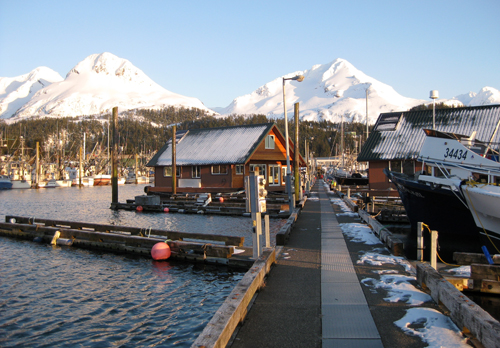
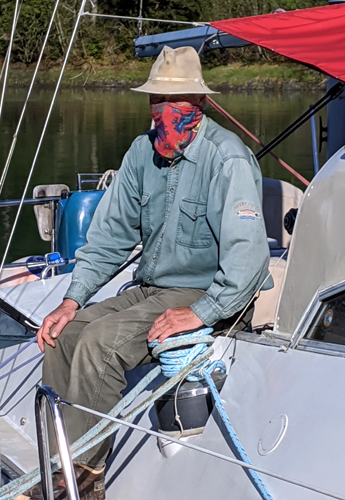
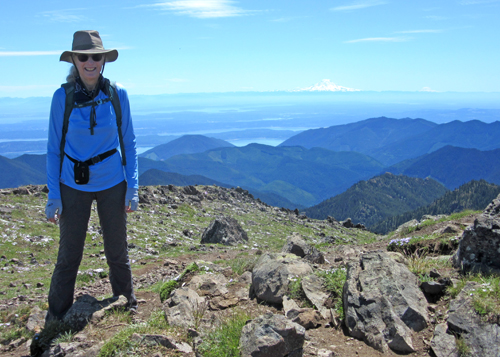
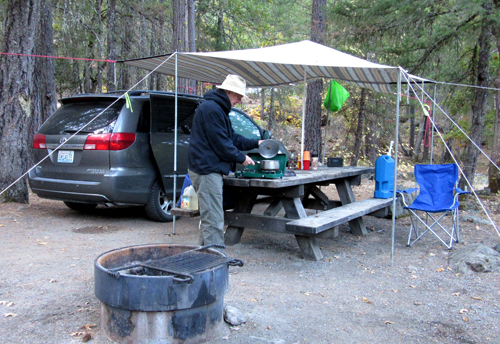
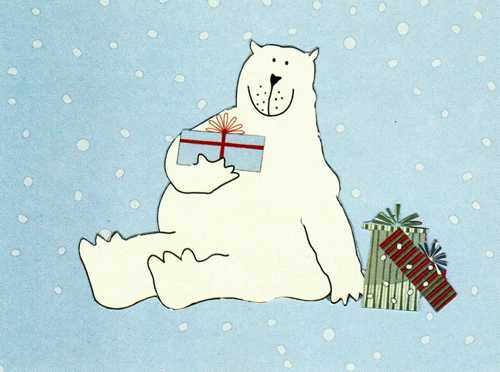

0 Comments:
Post a Comment
<< Home